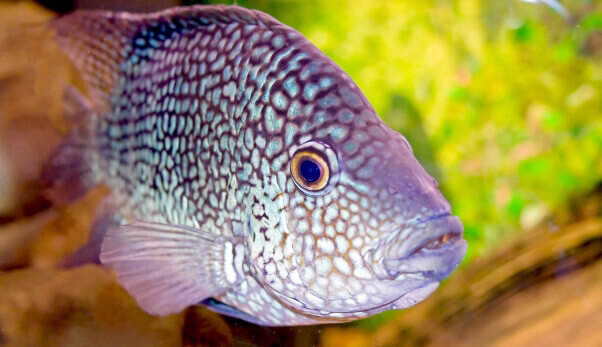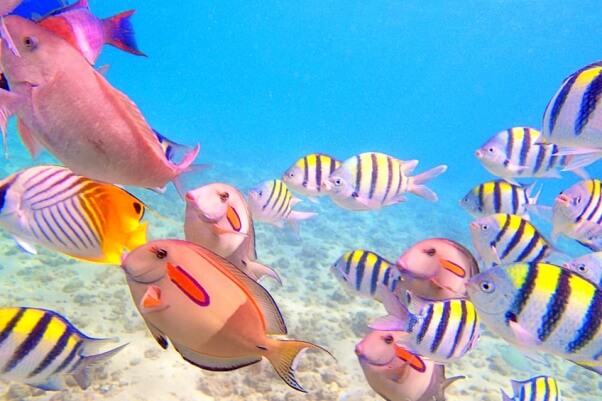Fish Have Wingmen, and Other Things You Never Knew About Our ‘Underwater Cousins’
Rabbitfish take turns standing watch for predators so that their friends can eat. Guppies hang with their less-attractive brethren to impress the ladies. French grunt fish grind their teeth when they’re anxious or in pain. Goldfish can tell the difference between Bach and Stravinsky.
These observations and many others show that fish are sentient beings—that they feel pain and pleasure, are intelligent, and have memories, concepts that author Jonathan Balcombe explores in his new book, What a Fish Knows: The Inner Lives of Our Underwater Cousins.

“Thanks to the breakthroughs in ethology, sociobiology, neurobiology and ecology, we can now better understand what the world looks like to fish,” Balcombe, an ethologist and biologist, said recently on NPR.
Cases in point: There are some reef fish, he says, who recognize individual divers and will come up to them to be stroked. (Sound like any dogs you know?) Some bony fish can navigate at night because they have specialized scales with tiny hairs that sense changes in water pressure. Fish who produce electrical signals to communicate switch frequencies when they’re near fish who are using the same frequency, so that they don’t jam and confuse each other.

Oceans, rivers, and lakes are teeming with examples of aquatic sentience, like the orange-dotted tuskfish, who will dig a clam out of the sand, carry the animal to the appropriate rock, and bash the clam against it until the shell cracks and dinner is served.
Yet in spite of all we know about how smart and sensitive our underwater cousins are, Balcombe says that “[w]e humans kill between 150 billion and over 2 trillion fishes a year.” He goes on to say, “And the way they die—certainly in commercial fishing—is really pretty grim. There’s a lot of change that would be needed to reflect an improvement in our relationship with fishes.”
We can improve that relationship by posting “No Fishing” signs on our property, protesting fishing tournaments, encouraging our legislators to enforce wildlife-protection laws, and, of course, never buying or eating fish.
And we can remember that all sentient beings deserve our compassion.
“[I]f an animal is sentient … to me, that means that animal has moral traction, or it should have moral traction—that the animal is deserving of consideration of others,” Balcombe says. “And that … is the bedrock of ethics.”
